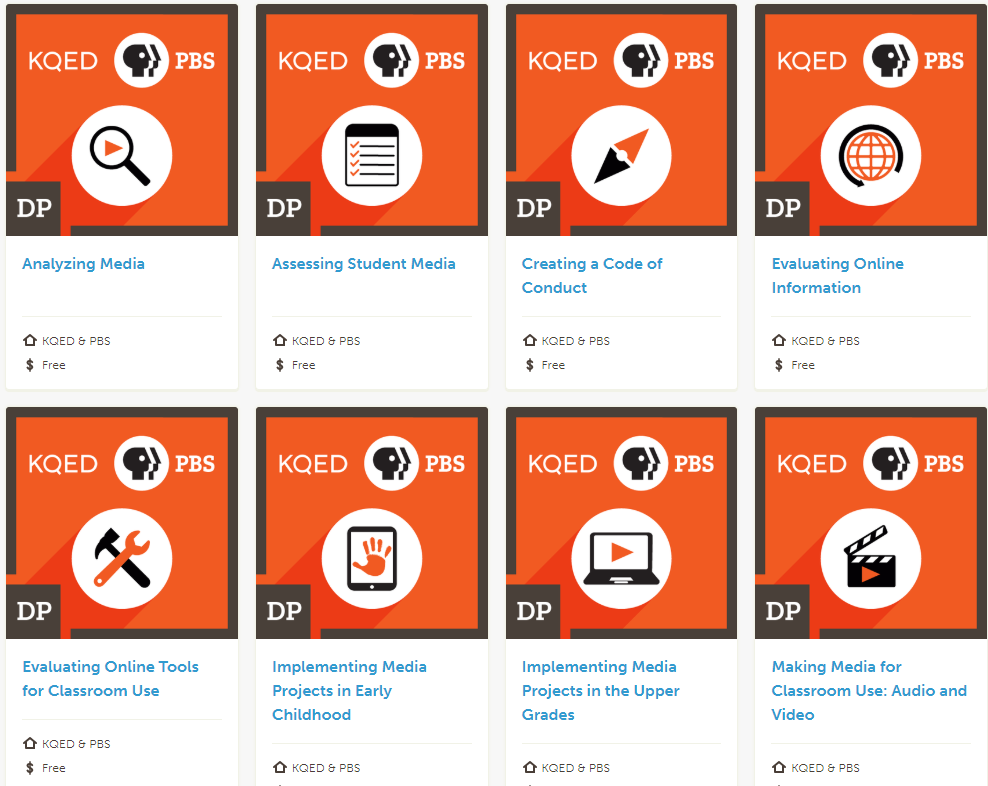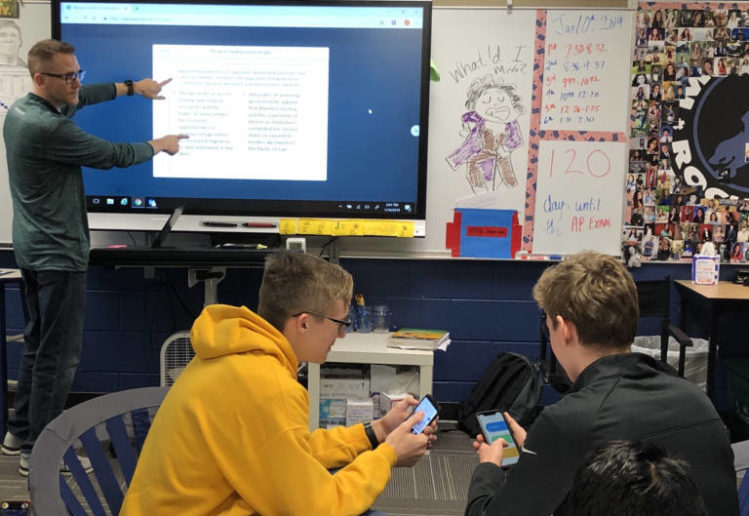KQED and PBS partner to launch a set of nine micro-credentials for teachers on media literacy skills for the classroom. Teachers who earn eight micro-credentials automatically earn a certificate as a PBS Certified Media Literacy Educator.
Whether you are a seasoned media educator, or just starting on your journey to incorporate media into your teaching, these micro-credentials can help you to chart your own professional development and demonstrate your achievements along the way.
The micro-credentials are tied to important media literacy competencies that we believe a well-rounded educator should aspire to:
- Evaluating Online Information: Ability to use, as well as instruct others to use, online tools to access credible resources related to specific lines of inquiry.
- Analyzing Media: Ability to analyze and evaluate media, as well as instruct others to do the same, specifically with respect to how production choices influence media messages.
- Creating a Code of Conduct: Ability to clearly communicate, model and uphold a code of conduct or other set of clear expectations for student use of online resources and platforms that promotes a positive school culture and supports safe and responsible technology use.
- Evaluating Online Tools for Classroom Use : Ability to evaluate online learning tools with respect to Federal rules and regulations related to student safety and privacy, as well as with respect to the Terms of Service agreements for online platforms/services in use in your learning environment.
- Making Media for Classroom Use: Images, Graphics and Interactives: Ability to create original image-based or interactive media content to support the learning of a student audience.
- Making Media for Classroom Use: Audio and Video: Ability to create original audio and/or video content that communicates a specific message to and support the learning of a student audience.
- Implementing Media Projects in Early Childhood: Ability to create and implement effective content-specific instruction in preK – Grade 2 in which students learn content by accessing, creating and sharing media.
- Implementing Media Projects in the Upper Grades: Ability to create and implement effective content-specific instruction in grades 3 and up in which students learn content by accessing, creating and sharing media.
- Assessing Student Media: Ability to design and implement assessment practices for student-created media that are aligned to standards-based learning outcomes and provide learners with quality, actionable feedback about both the academic content requirements associated with the media and the quality and effectiveness of the media itself.

Head to kqed.org/certification for more information.

